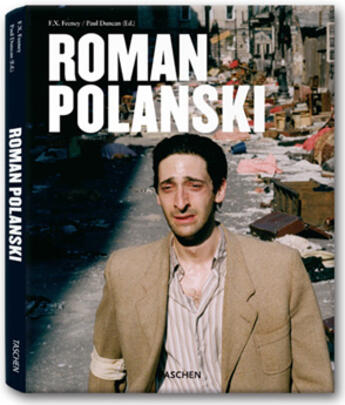-
Date de parution : 21/02/2006
-
Editeur :
Taschen
-
EAN : 9783822825433
-
Série :
(-)
-
Support :
Papier
Résumé:
"I like shadows in movies. I don't like them in life". Roman Polanski
Roman Polanski's ability to wring laughter from the most degrading heartbreaks will carry the same wealth of healthy shocks in a hundred years. He creates a macabre beauty to be wooed by and wondered at. But behind the... Voir plus
"I like shadows in movies. I don't like them in life". Roman Polanski
Roman Polanski's ability to wring laughter from the most degrading heartbreaks will carry the same wealth of healthy shocks in a hundred years. He creates a macabre beauty to be wooed by and wondered at. But behind the laughter and the beauty is the ghostly truth that Polanski was orphaned by the Nazis and wandered Poland alone from ages 9 to 13. Consider the isolated intensity that bridges Knife in the Water, Cul de Sac, Rosemary's Baby, Chinatown, Death and the Maiden and his Oscar-winning masterpiece The Pianist. In each, the omniscient viewpoint feels "childlike" in the least innocent sense: we listen and watch, ever-wary; the truth of what's been hidden, or is being planned in secret, is always a matter of life and death; one's survival (even within the playful confines of a fantasy) depends on not missing so much as one detail.
This book has been made with full access to Roman Polanski's archives.
Donner votre avis














